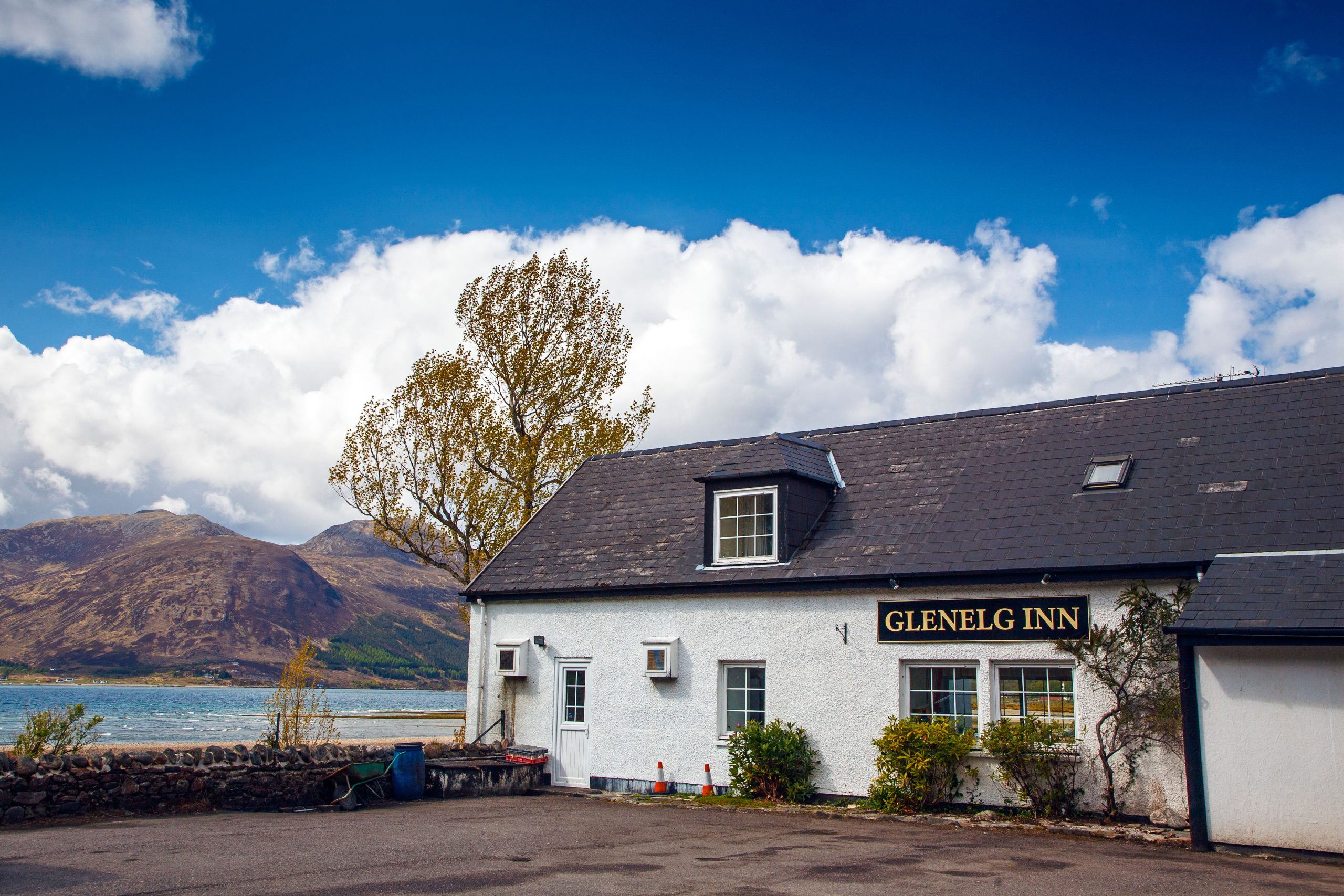Riling up the FBI, riding motorbikes through pubs and hosing-down amorous couples with a fire extinguisher: Farewell to a true legend of the West Highlands
Joe Gibbs waves goodbye to Chris Main, an unforgettable character who, you feel, could have a book written about him. And it's a book that would make an amazing TV series.

Exquisite houses, the beauty of Nature, and how to get the most from your life, straight to your inbox.
You are now subscribed
Your newsletter sign-up was successful
Bonnie Dunbar had seen some astonishing sights during her five shuttle flights as a NASA astronaut, but nothing quite like the line of Earthlings that greeted her arrival in the Highland coastal village of Glenelg in 2012. Arrayed in blue Lycra body suits, painted faces, wigs, kilts and mini kilts for the ladies, the reception committee formed up.
On the road into the village, Bonnie passed a sign that read: ‘Glenelg (Earth) twinned with Glenelg (Mars).’ As one of the welcomers teetered uncertainly on stilts, defying gravity in the breeze, and another, already blue in the face, pumped up the pipes, she may have thought she had landed on another planet.
The story began that January, when a buggy crossed Mars and, on its outward and return journeys, visited some ancient rocks. Some genius in NASA had dubbed that place Glenelg because the word is a palindrome — mimicking the out-and-back nature of the visit — and because there is a Glenelg in Canada where geologists study continental North America’s oldest formations. The residents of Glenelg, Wester Ross, radioed Houston to point out that theirs was the original Glenelg and from that came the NASA visit.
"He was one of those colourful characters whom the vistas of the West Highlands allow space to flourish"
The inspiration behind the eccentric guard of honour and its commander was Chris Main, shod on the day in ski boots. He claimed to have had ‘previous’ with the Americans, from when he ran a community website called ‘Getting the Craic’, which crashed on a regular basis. Chris blamed the FBI, who, he claimed, had mistaken ‘craic’ to mean hard drugs rather than Celtic badinage.
It was Chris whose life we celebrated last weekend. A mere 64 when he died, he was one of those colourful characters whom the vistas of the West Highlands allow space to flourish. He left behind a considerable legacy: it was through his motivation, supported by an enthusiastic group of fellow-travellers, that the six-car Skye Ferry between Glenelg and Kylerhea — ‘the only hand-operated iron turntable ferry remaining in the solar system’ — was revived. A regular crew member himself, he always directed German tourists seeking Kintail via the Glenelg war memorial. On the day of Chris’s own memorial, the brilliant red and green MV Glenachulish stood offshore and lowered its ramps in salute, tooting his name in Morse code.
Chris also rescued the derelict Glenelg Inn, where Johnson and Boswell sought shelter and which they later reviewed rather scathingly. Under his unconventional proprietorship, the Glenelg became a favourite destination for many. In the days before Tripadvisor, Chris had ridden his scrambler bike over the pool table of his former hostelry, the Kintail Lodge, and used fire extinguishers to blast duvets off couples he thought might be enjoying themselves too much in bed.
In the dining room of the Glenelg, he confined himself to making occasional appearances in the nude, a baseball cap covering his gentleman’s parts, conversing with customers like the most urbane of hosts. His resemblance to a young Gordon Jackson (think Hudson in Upstairs Downstairs) confused them even more. Birthday celebrants would be startled by the sight of his approach, revving a chainsaw to cut their cakes.
Exquisite houses, the beauty of Nature, and how to get the most from your life, straight to your inbox.
In a letter from him two months before his death, he wrote to us in his green ink: ‘You must come and stay here after Easter… We’ll go out in the boat and have a wee BBQ on some lovely beach somewhere.’
He never saw Easter. I do hope he is on some lovely beach.